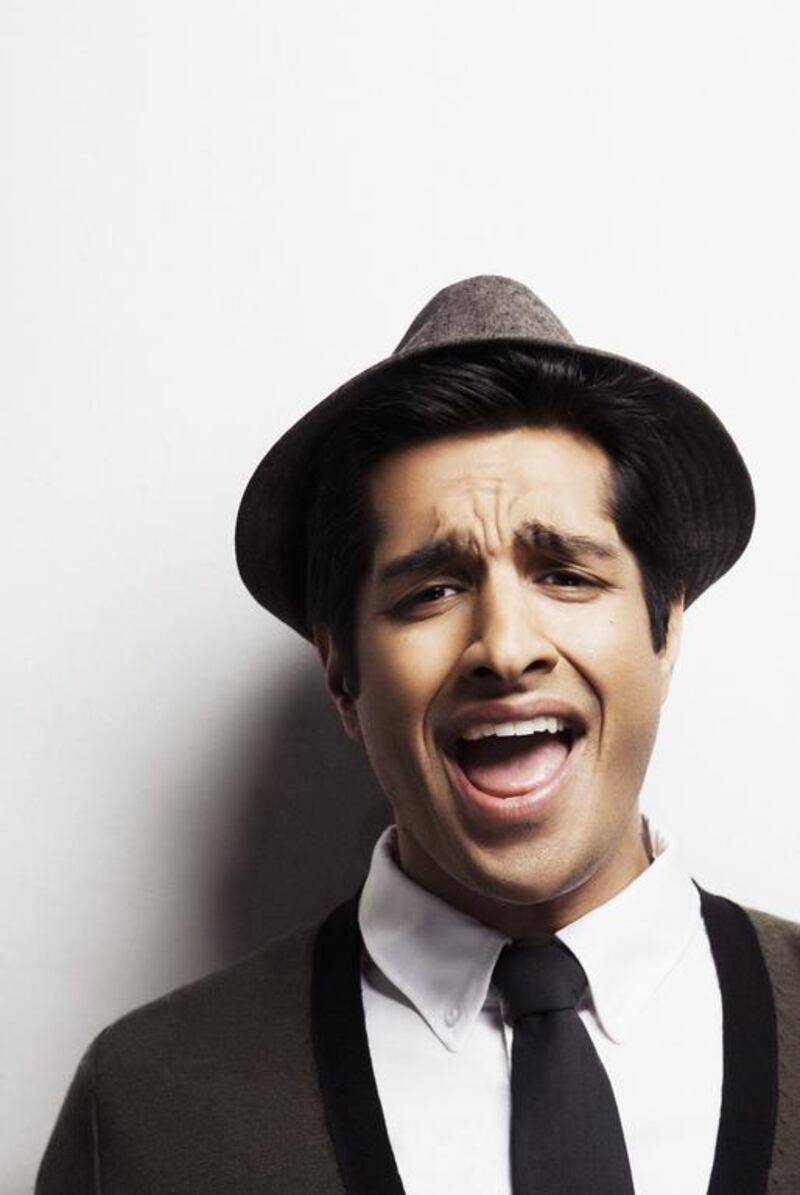Sugar Sammy is relaxing at home – which is neither his natural state, nor indicative of his habitual effect on others.
The comedian works constantly – at provoking his audience. Born Samir Khullar in Montreal, Canada, he’s a player in an emerging new generation of non-white comedians who revel in the licence granted by the very ethnicity that might once have excluded them.
The crowds at his show are a United Nations of ethnicities, and he goes after every one – East Indians, African-Americans, Haitians, Jamaicans, Italians, Irish – and he probes for the soft spots, the clichés, digs into them, and immediately bonds.
In a way, it started with French.
Given his stage name in college for his ability to hustle up ladies to parties he promoted, Sugar Sammy was working comedy in English “and I realised there’s a huge French industry here in Quebec” where the majority of the population speaks the language. “I’d like to try French comedy, but I’d like to see my point of view represented honestly.”
He sensed that other ethnic comics were “holding back a little. Like ‘ooh, I can’t really say this because I’ll get too much heat and it’s gonna become a scandal. Or I’ll get booed off the stage.’ So I said, OK, lemme go and see what happens.”
What happened was a comedy phenomenon: 300,000 tickets sold for his You're Gonna Rire and En Français S V P shows all across Quebec, with what was supposed to be a one-show experiment turning into more than two years of touring.
But Sammy was an internationalist from the get-go. He had already toured his English-language comedy around the world, including London, South Africa, the United States, India and Dubai.
“It’s not something I do consciously,” Sammy says of the accents and mannerisms he perfectly duplicates. “I guess it’s just the fact that I go up there and they always say ‘write what you know’, and what you see onstage is pretty much everything I’ve absorbed in the past 39 years growing up the way I did.”
Sammy grew up “in the most multicultural neighbourhood and went to the most multicultural high school in Montreal. Everybody there was a second- generation immigrant, learning French – which was not their first language, probably not even their second”. So ethnicity was not “foreign” to him. Sammy’s first language is Punjabi and he also speaks Hindi. “I don’t speak English at all with my parents. Or French.
“When you’re a kid, you don’t leave your neighbourhood that much, that’s where you hang out. So for the first 16 years, I didn’t even know there was a different type of world out there.
For comedy role models, there were “Richard Pryor, Chris Rock, Dave Chappelle – those are my guys. My friends and I, all these ethnic kids, we connected with that. We liked it when someone expressed that point of view, which was the ‘marginal’ one to the majority, but was the normal one to us.”
The experience means that Sammy has been able to “adapt wherever I go. I’ve been to Dubai quite a bit, and I started out by doing a set on TV there on the Showtime Arabia channel.
“They decided to do an international comedy show with nine comedians from all over the world and I was closing, headlining it. And as soon as it aired, it got me a lot of love from the Middle East. All of a sudden I had these requests to go to all these different countries. They ‘get’ me, I guess, and I ‘get’ them. I connect with them very well because of the way I grew up,” he says .
“That’s how I learnt how to connect with anyone on the planet. Because in my neighbourhood, I had to. So when I go to, say, Lebanon, I have all these culturally inside jokes I do. And people say: ‘How do you know this stuff?’ and I say: ‘Well, I grew up with Lebanese people two blocks away from me. We used to play hockey together.’”
Beirut may not get the “hockey” reference … but wherever he goes, he connects. “You have to be so precise with it and so right-on that it doesn’t become a caricature or stereotypical. That it’s honest. And when that happens, I think people celebrate that and go: ‘He knows us.’ People know when you love them and when you don’t.”
In Haiti, he began dropping riffs in Créole “and everyone there lost it, yelling, cheering, going: ‘How is this Indian guy speaking perfect Créole to us?’ Well, 40 per cent of my high school was Haitian.”
So what border can possibly hold back the intrepid internationalist? As it turns out, audience reaction isn’t always what it seems to be.
“I went to Northern Ireland – whoa,” he says. “The audience there was hostile right from the start. They weren’t sitting, just standing – hundreds of people. They wouldn’t even let me get to the punchlines. It felt like they had come there to fight. And my contract said I had to do 45 minutes.”
Despite being terrified, he finished the set. “I got offstage and said to the owner: ‘That was horrible – I thought they were gonna kill me.’
“He says: ‘That’s one of the best shows we’ve ever had!’”
artslife@thenational.ae





